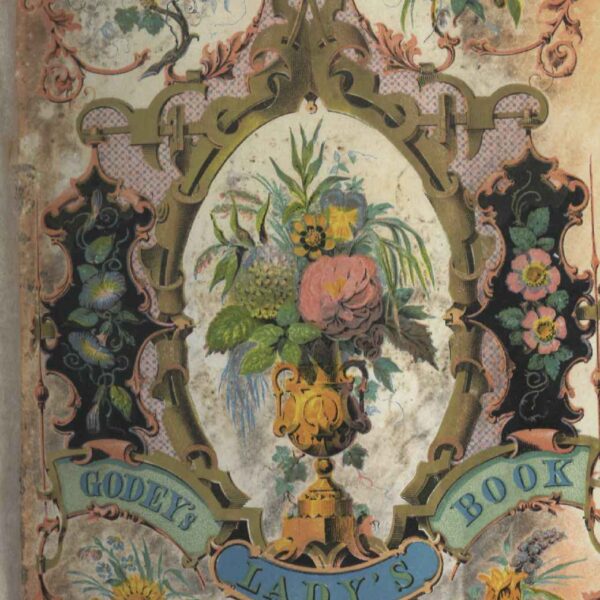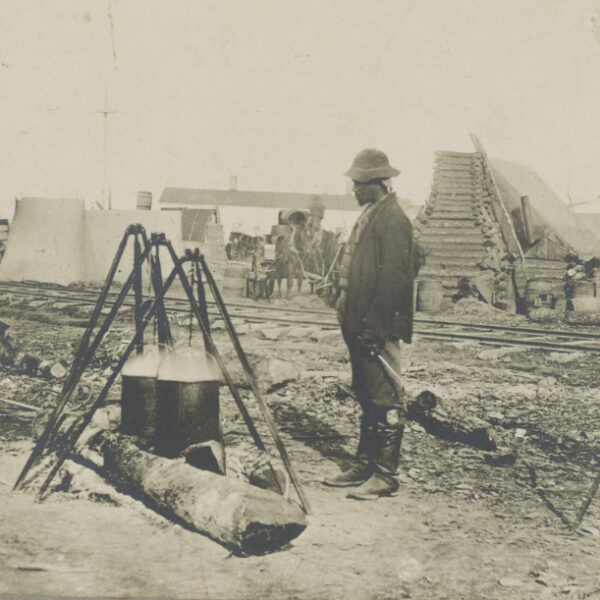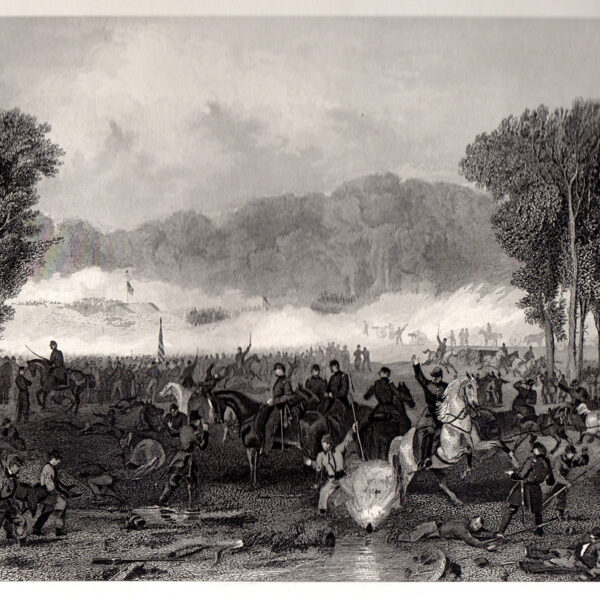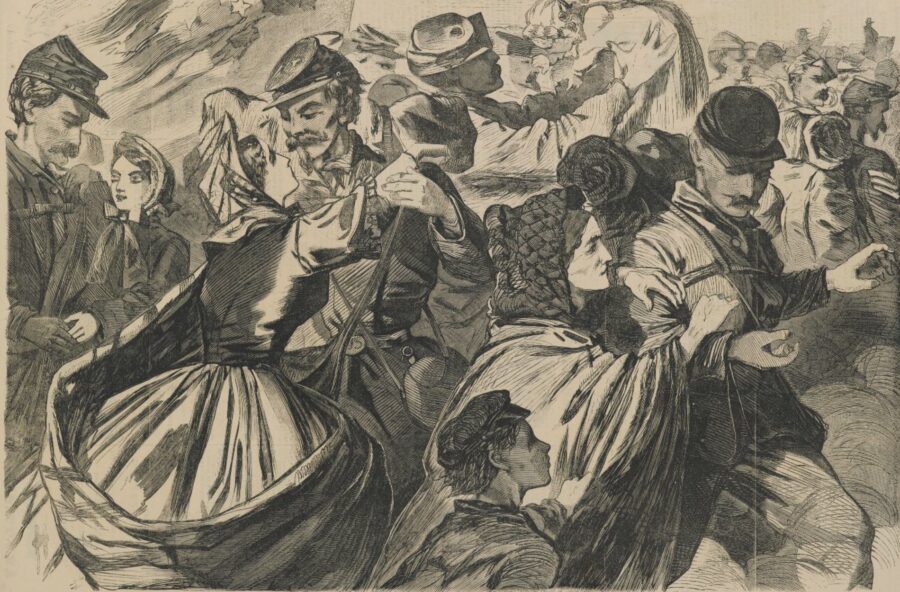 Harper's Weekly
Harper's Weekly“Home for the War” by Winslow Homer
In the Voices section of our Spring 2024 issue we highlighted quotes by Union and Confederate soldiers and civilians about the homecomings that occurred at the end of the Civil War. Unfortunately, we didn’t have room to include all that we found. Below are those that just missed the cut.
“Home, once more at home…. Reached Columbia at six o’clock. Found my mother and family … were here. They were surprised and delighted to see me, not knowing where I was. Mother and grandfather had both been made sick by the fall of Richmond….”
—South Carolina soldier M.E. Darby, in a letter to a friend about his recent homecoming, April 14, 1865
“I left Springfield … and went to Alton…. I now hunted diligently to find some farm wagon that might be going to the vicinity of home, but found none. While so engaged, to my surprise and great delight, I met the old Chaplain, B.B. Hamilton …. [who] had resigned during the previous March and had been at home for some months. His greeting to me was in his old-fashioned style. ‘Son of Jeremiah!’ he exclaimed, as he extended his hand…. [He], like me, was trying to find some farmer’s conveyance to take him about five miles into the country to the home of an old friend. I ascertained that his route, as far as he went, was the same as mine, so I proposed that we should strike out on foot…. I left my valise in the care of a Jerseyville merchant, and with no baggage except my sword and belt, we proceeded to ‘hit the dirt.’ I took off my coat, slung it over one shoulder, unsnapped my sword, with the scabbard, from the belt, and shouldered it also. Our walk was a pleasant and most agreeable one, as we had much to talk about that was interesting to both. When we arrived at the mouth of the lane that led to the house of the Chaplain’s friend, we shook hands and I bade him good-by, but fully expected to meet him many times later. But our paths in life diverged, and I never saw him again.”
—Leander Stillwell, 61st Illinois Infantry, on encountering an old comrade while making his way home in September 1865, in his memoirs
“We found a farm house near by, where we stood before a blazing fire to dry. The people were very kind to us and gave us the best they had to eat, but our clothes were too dirty and vermin-infested for us to sleep in their houses, so we slept in the barns. At one house where we stopped and asked for something to eat the man’s wife was in a pitiful condition with cancer, but was without medicine to alleviate her suffering. I happened to have a bottle of morphine in my haversack, which I gave her and which was enough to last her for the short time she could live. We were three weeks on the way, and when I reached my father’s home nobody was expecting me. I was completely exhausted, but after getting on some clean, whole clothes and sleeping in a bed once more I felt greatly refreshed. Father has given me a good horse in exchange for my little mule, and I hope to be rested enough to leave here day after to-morrow and go through the county in a buggy for you.”
—Surgeon Spencer Glasgow Welch, 13th South Carolina Infantry, on the progress he and some comrades had made after leaving for South Carolina after the surrender at Appomattox, in a letter to his wife, May 2, 1865
“Rainy. Reached home on the morning train. Met my good mother at the door. It seemed so good. She seemed perfectly resigned to the loss of Theodore. Never was more happy in my life.”
—Luman Harris Tenney, 2nd Ohio Cavalry, on returning home on leave at war’s end, in his diary, April 20, 1865. Theodore Tenney, Luman’s soldier-brother, was killed 19 days earlier at the Battle of Five Forks.
“Arrived home last night at 9 o’clock. Great was the welcome home. Crowds were in waiting to receive us. Hearts full of thanksgiving that we were permitted to return to good old Connecticut. Soon made our way to our various homes.”
—Charles H. Lynch, 18th Connecticut Infantry, in his diary, July 1, 1865
“This morning we sat on the front porch watching the road. Father sat in his big rocker and Mother sat close beside him…. Father said, ‘There they come.’ Entering the front gate, too far for my near-sighted eyes to distinguish one from another, were three Confederate soldiers. Poor fellows; they were pitiful. Thin and so browned by exposure, until they were hardly recognizable.”
—Susan Bradford Eppes, on the arrival home of her soldier-brother, cousin, and friend, to the family plantation in Tallahassee, Florida, in her diary, April 19, 1865
“While praying for the return of those who have fought so nobly for us, how I have dreaded their first days at home! Since the boys died, I have constantly thought of what pain it would bring to see their comrades return without them—to see families reunited, and know that ours never could be again, save in heaven.”
—New Orleans resident Sarah Morgan, in her diary, May 1865. Two of her three Confederate soldier-brothers had been killed in the war.
“We entered the city from the Main street road, our way being marked with desolation and ruin on all sides. One solitary house is all that is left upon that whole street above the State House. Turning out of that street, we lost our bearings in the surrounding mass of brick and ashes. There are few landmarks left in the heart of the city to enable the wayfarer to distinguish one locality from another. It is all so strange, so sad, so hard to realize…. The relief to my overwrought feelings as we drove through the silent streets was in a woman’s refuge—tears…. War has no pity, yet, oh! The pity of it! Thus we reached home.”
—Malvina Sarah Black Waring, on returning to her home in war-torn Columbia, South Carolina, in May 1865, in her diary
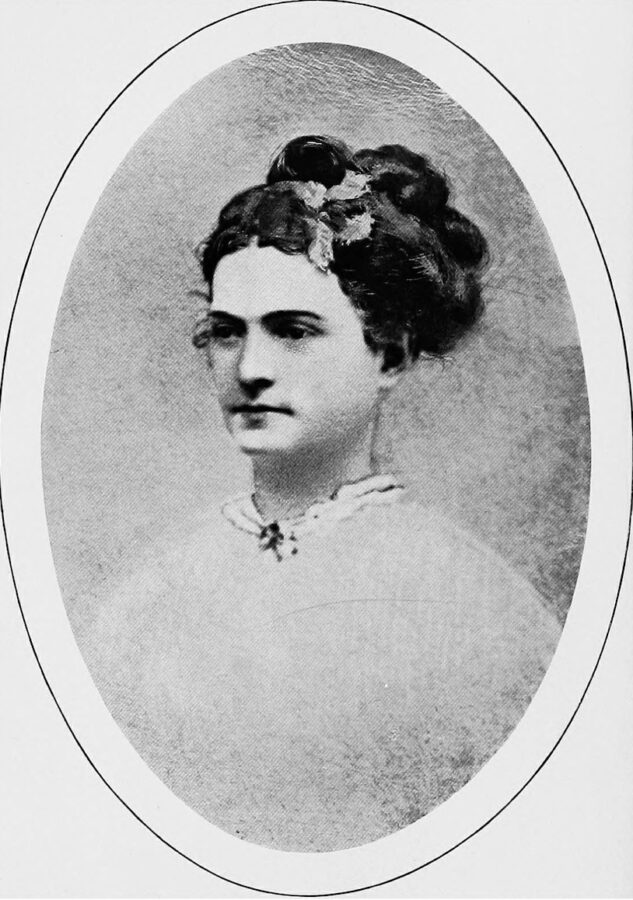 The War-Time Journal of a Georgia Girl (1908)
The War-Time Journal of a Georgia Girl (1908)Eliza Frances Andrews, from a photograph taken in 1865
“My father and stepmother … [had] died. My only brother was killed … and a half brother on the Union side … died. So our home was broken up and I was penniless.”
—Confederate Josia Reams, on returning to his home in McNairy County, Tennessee, in the spring of 1865
“It gives me more pleasure to feed the poor Rebs than to eat myself. I go out and talk with them frequently, while they are waiting to have their food cooked. This evening, two of them were sitting on the front steps talking over their troubles, and I heard one of them say: ‘If I kin just git back home to Sally once more, I won’t care about nothin’ else.’ He was young, I could see, through all the dirt and grime on his face, so I suppose ‘Sally’ was either his sweetheart, or the young bride he left when he went away to the war.”
—Eliza Frances Andrews, on overhearing a conversation with Confederate soldiers on their way to their homes, outside the family house in Washington, Georgia, in her journal, May 8, 1865
“The soldier is proud to return home bearing his shield; and is received in this gold-clapped, brown old city by the sea with every token of honor, respect and welcome.”
—A soldier in the 13th New Hampshire Infantry, reflecting on the welcome he and his comrades received in Boston as they passed through on their way home, in his diary, June 25, 1865
“I started for home, thirty miles distant, with Abner Hatch, who had come down from our neighborhood with a team for the purpose of taking a load of the boys home. We left Davenport at 7:30 o’clock this morning and I reached home at 5 p.m. I found my folks all well. I am at home this time never to go to war again. It was a fine day for a ride in Iowa; it had rained yesterday, and though it was somewhat cloudy, the prairies never looked so nice and green as they did today.”
—Alexander G. Dowling, 11th Iowa Infantry in his diary, July 23, 1865
“We reached Brattleboro about five o’clock in the afternoon, where the regiment was welcomely received, and notwithstanding the war-torn and battle-stained uniforms presented a rough appearance, kind friends greeted us. We are once more in our native State, whose green hills and pleasant valleys we left to fight in this war for right and freedom.”
—John C. Williams, 14th Vermont Infantry, on his regiment’s return home on July 21, 1863, after completing its nine-month service, in his diary
“I have been gone three years. I meet my wife and Oh, such a greeting. I left our baby boy in the cradle, six weeks old. I find him walking the fence. I said to my wife, ‘That boy will surely fall off the fence,’ and my wife said, ‘That boy will never fall off the fence,’ and he never did.”
—Calvin Ainsworth, 25th Iowa Infantry, on his return home at war’s end
“I shall not attempt to describe my feelings: the city in ruins and the hated and triumphant army of our malignant foes marching through the ruined city…. [W]ith a raging headache and swelling heart I reach my home.”
—John Dooley, 1st Virginia Infantry, on returning home to Richmond in May 1865, in his diary
“With this he laid his head on the library table and sobbed. Such sobs as I had never heard—dry, harsh, choking. The room shook with their violence. Oh! It was awful to see that great, strong, splendid man, so completely unstrung…. I sit here and wonder, wonder if all the dear ‘men in gray’ feel as crushed and disconsolate as these? Is the home-coming painful to them all? Will they ever be able to forget?”
—Susan Bradford Eppes, on the scene after her Confederate soldier-brother finished recounting his recent travails after returning home to the family plantation in Tallahassee, Florida, at war’s end, in her diary, April 19, 1865
“My father after the war came home and found the fences all burned, his mother dead, his father broken in health, and his wife an invalid, but he went to work on the farm and lived there the rest of his life.”
—L.S. Howell, answering a question from the Tennessee Historical Committee, posed in 1922, about “life since the close of the Civil War” on behalf of his father, John S. Howell, a soldier in the 1st Tennessee Cavalry (Confederate)
Sources
South Carolina Women in the Confederacy, Vol. 2 (1907); The Story of a Common Soldier of Army Life in the Civil War, 1861–1865 (1920); A Confederate Surgeon’s Letters to His Wife (1911); War Diary, 1861–1865 (1914); The Civil War Diary, 1862–1865, of Charles H. Lynch (1915); Through Some Eventful Years (1926); A Confederate Girl’s Diary (1913); South Carolina Women in the Confederacy, Vol. 1 (1903); James I. Robertson Jr., Soldiers Blue and Gray(1988); The War-Time Journal of a Georgia Girl (1908); Thirteenth Regiment of New Hampshire Volunteer Infantry(1888); Downing’s Civil War Diary (1916); Life in Camp (1864); Calvin Ainsworth diary, Bentley Historical Library; Paul A. Cimbala, Veterans North and South (2015); Through Some Eventful Years (1926); The Tennessee Civil War Veterans’ Questionnaires, Tennessee State Library and Archives.

